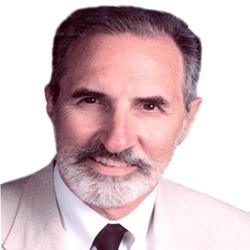
Dr. Joel Pardee
The Weill Cornell Graduate School of Medical Sciences, with its 257 Ph.D. students and 205 faculty drawn from Weill Medical College and the Sloan-Kettering Institute, was one of five graduate schools in the life sciences featured in Science magazine's special advertising supplement on "Graduate Programs: Preparation for Life," in the magazine's January 25th issue. Dr. Joel Pardee, associate dean of the Graduate School, was interviewed by writer Peter Gwynne for Science. The report on the Graduate School is reprinted below with permission from Science magazine.
The Weill Graduate School of Medical Sciences of Cornell University has a rigorous and intriguing entry process. "Our standards are designed to attract the best and brightest students of science," says associate dean Joel Pardee. "Last year we had 450 applicants. Of those, we invited 125 to come to the university free of charge for a weekend during which we interviewed them and took them to restaurants, shows, and cultural events that introduced them to the New York City experience. We offered acceptances to 90 of the 125, and 60 came."
Acceptance provides more than a strong graduate program. "We pay graduate students a stipend of $25,800 per year," says Pardee. "We pay for all tuition, full health insurance coverage, subsidized apartment housing and cut-rate tickets to the theater and other cultural events. We want them to enjoy the nearly unlimited cultural experiences New York City has to offer."
Academically, all students take the admission to candidacy examination at the end of their second year and embark on a Ph.D. program. Pardee, who is also an associate professor of cell biology and anatomy, has noticed an emerging student interest in discipline-driven areas of concentration, including cancer biology, chemical biology, computational biology, developmental biology, immunology, medical genetics, and structural biology. Molecular pharmacology and neuroscience are popular as well. And there's a lot of interest in the medical applications of fundamental biology and genetics. "Specialized biomedical science seems intriguing now," he says. "This is especially attractive in our tri-institutional setting composed of Memorial Sloan-Kettering Cancer Center, Rockefeller University, and Weill Medical College of Cornell University."
Graduates' career paths are quite varied. "Our mission is to train research scientists. About 85 percent go on to a postdoctoral fellowship in anticipation of an academic post or go directly into biotechnology and research," says Pardee. "But a growing number of students are interested in consulting, patent law, and international health issues." The school aims to give students information about possible careers by sponsoring a monthly career pathways seminar series that features speakers from academia, industry, government, law firms, and other prospective employers. "We run the seminars concurrently with recruitment, so that seniors can set up job interviews on the spot," Pardee adds.
Other student seminar series focus on developing communication skills. Each student gives seminars each year to fellow students and faculty, all of whom evaluate the presentations. Students also present their work at annual retreats, and at the Vincent duVigneaud Research Symposium, the schoolwide celebration of science. To further their exposure to the science community, the school provides funds for all students to travel to national scientific meetings and courses.
The school looks closely at applicants who have GREs in the 80th percentile. However, Pardee says, "The most critical point is a demonstration that you have real interest in becoming a biomedical scientist. That's most easily satisfied by having done productive research."

